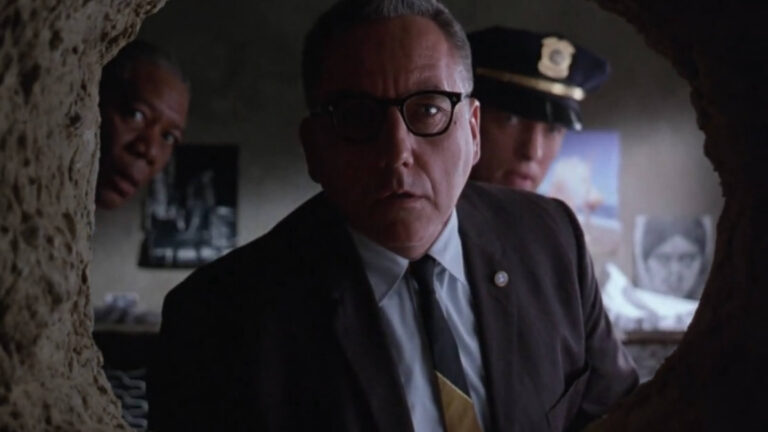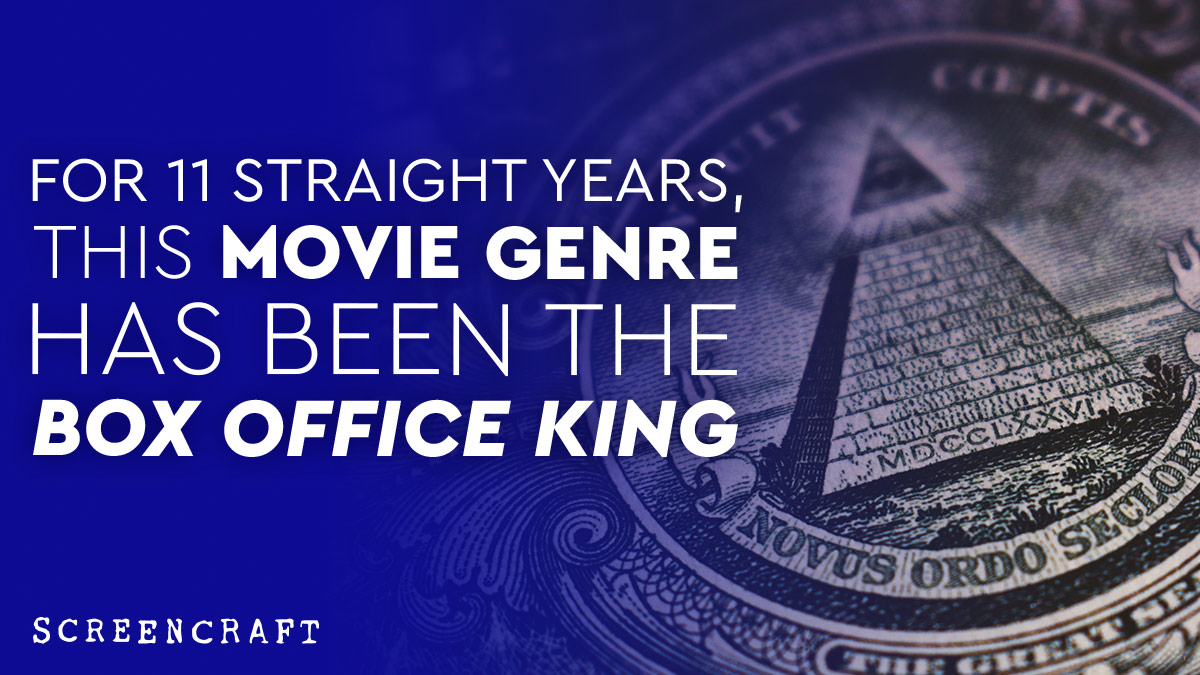
So, you want to write like Aaron Sorkin. I hear you. I get it. I do, too. But if I’m honest, the title of this post should really be: “How to Write Like Aaron Sorkin… and Other Lies.” I’d be lying if I were to promise that anything I mention here will miraculously lead to you writing just like Mr. Sorkin. Instead, with this post, I’m hoping to explore the question of whether wanting to write like Aaron Sorkin (or any other writer, for that matter) is a worthy goal. After all, the only person who can truly write like Aaron Sorkin is… Aaron Sorkin.
Perhaps the more productive aim is to ask: “How can I write more like… myself?” To me, that’s an actionable question, one that will lead to the best kind of self-exploration and honesty. And, though I don’t know for certain, that very question may just be what Aaron Sorkin asks himself: how can I write more like myself?
The topic at hand is really “personal voice.” Aaron Sorkin has a strong, defined voice. It is apparent across his various works (be they A Few Good Men, The Social Network, The West Wing, Steve Jobs, Molly’s Game, etc.). You, too, have a personal voice. Through this article, we will explore various techniques for connecting with that voice.
What is a Personal Voice?
You’ve likely heard people mention “personal voice” when speaking about a screenplay, a book or a film. But how exactly is this so-called “voice” defined?
Is “voice” the result of the ways sentences are formed on the page?
- One might argue that “voice” is defined by how one composes sentences on the page. For stage direction/action, does the writer use flowing full sentences, carrying the reader on a wave of prose? Or does the writer opt for staccato, terse phrasing, forcing the reader to… leap. From word. To word?
- For instance, compare the chunkier paragraph style of Paddy Chayefsky’s Network with the more terse prose in Stephen Susco’s The Grudge.
- This same question can be considered when reviewing dialogue. Is “voice” defined by the rapid, highly intellectualized dialogue of your characters, as in Aaron Sorkin’s The Social Network, or by colorful, unique dialogue phrasing, as in The Coen Brothers’ Fargo?

Is “voice” defined by the attitude behind the written words on the page?
- One could suggest that “voice” is defined not by the way words are composed on the page, but by the meaning or worldview formed through those words. Is this where one’s “personal voice” is found? For instance, the Coen Brothers’ screenplays often end with a slightly off-kilter resolution, leaving room for moral complexity (eg., A Serious Man or No Country for Old Men). Compare the moral ambivalence of those works to the moral certainty of Richard Curtis’s screenplays (i.e. Yesterday, About Time, Love Actually). Richard Curtis’s narratives tend to resolve neatly, with a once-confused world now cleanly organized. Now, obviously, the Coen Brothers and Richard Curtis are generally working in very different genres, but when we think about their “voice” as writers, is the voice defined by their unique sense of how narratives should resolve? Perhaps.
The truth is, there is an abundance of factors that go into defining one’s personal voice. It is a combination of writing style, genre choice, worldview/thematic perspective, dialogue style, etc. But above all else, your personal voice is defined by one thing… YOU. You are the common thread unifying all of these factors. You are the unique element that makes your writing original, because everything in your screenplay will have passed through your personal filters. Learning to listen to that taste-maker inside yourself is the key to further defining your personal voice.
How to Develop Your Personal Voice.
This may seem obvious, but one useful method for connecting with your personal voice is to connect with that which makes you YOU. What about your life experience makes your perspective unique? Here are a few areas you may want to tap into to further explore your unique point of view:
- Do you have a distinct family situation? How did your upbringing shape you into who you’ve become? Since childhood is so central to shaping us as people, those early experiences are generally emotionally charged and ripe for creative exploration.
- Do you have a rich cultural background that can be further explored? What are the core beliefs of this culture? Do they provide an entry point into a narrative or a thematic framework?
- Look to your unique regional background. Look to your standing within your social circle. What community do you live in? How have those influences shaped you? Can your unique perspective provide nuance to your story?
- Look to your hobbies, your talents, your personal interests. Is there a hobby you perused in elementary school that might form the basis for a story? Do you have a unique eye into the world of an obscure competitive sport? What topics do you tend to gravitate toward?
- Look to your bookshelf, your music collection, your mementos for guidance. What do those collections say about your interests? How can you apply that to your writing?
The aim of these questions is to connect you with the elements that make you and your perspective unique. They are the strands that you alone can bring to a story. They may seem mundane, but within these everyday pieces that define your life experience, a rich personal voice can be found. These areas should be mined for ideas, for inspiration, for pathways into stories. Since they are tied to your makeup as an individual, they may hold the key to infusing your work with a voice that is distinct and honest.
Ways to Mine Your Life for Inspiration.
I find journaling to be useful. If you don’t already do so, consider starting a word document or hard-copy journal for free-form, unstructured expression. Use this document or journal as a way to connect with yourself. Jot down any and all ideas that come to mind, without censoring yourself.
The lack of censorship is important. Screenwriting can be such a structured endeavor. While structure is vital to a strong script, I find that unstructured writing is as important, particularly when exploring ways into a story. Grant yourself the freedom to write unencumbered. You can judge yourself later (and you will), but not now.
As a way to start this self-exploration, consider taking an inventory of the main elements or events that have shaped your life experience. Maybe start chronologically. As you move ahead, reflecting on your life, you will no doubt stumble upon fertile areas for story exploration. You may reconnect with long-forgotten parts of your history. You may remember lost family members, lost loves, old fascinations, past struggles. Can those experience become touchstones for the story you’re building?
What Does My Hobby in “Stamp Collecting” Have to Do With my Alien Abduction Screenplay?
Okay, I hear you. You’ve done the journaling, you’ve examined your past, and you’ve been reminded of your old hobby as a stamp collector. Well done. But what does this element have to do with you screenplay about alien abductions? Good question. First of all, it may have nothing to do with that particular story. However, consider digging deeper.
On the surface, that personal experience (hobby, family background, or interests) may seem disconnected from your current screenplay, but is there a metaphorical connection to be had? Is there an emotional connection that may apply?
For instance, perhaps the excitement you had when collecting a rare stamp might relate emotionally to the excitement your protagonist has when finding a new lead/clue on her mission.
Perhaps that old hobby is something you shared with a long-lost friend. Perhaps that emotional relationship can help shape a relationship in your screenplay.
Can your unique life experience help to tie you emotionally to your screenplay, so that some element of your project feels personal to you? Whether this connection is literal or metaphorical, the important factor is that it connects with you – that your unique perspective gives you true authority to be the voice of this given story.
But, Really, I Just Want To Write Like Aaron Sorkin.
Fair enough. Wanting to write like Aaron Sorkin is no doubt a worthy goal. He is one of the titans of the craft. But be warned, only Sorkin is Sorkin. Imitation can only take you so far. That being said, reading the works of great writers is essential to learning the craft of screenwriting. And, surprise, surprise, it can even help you find your personal voice.
But how?
Your voice is shaped by the various influences around you. No one said one of those influences couldn’t be Mr. Sorkin. In fact, perhaps it should be. Certainly, learning from the styles of other writers is essential to honing your own skills. You can build your voice by experiencing the range of different voices around you. Read as many scripts as you can. Watch as many movies as you can. All the while, subconsciously, you are merging these influences with your own experiences and shaping your own personal voice.
Conclusion
If you came here looking to learn to write like Aaron Sorkin, I hope I didn’t lead you astray. But, in a way, this article does provide some guidance into how Sorkin may have learned to write like Sorkin. He dug into his own life experiences. He learned to express the unique voice that is only his. And you can do the same. Happy writing!
Ryan W. Smith is a screenwriter for film and television. He has written for companies such as Netflix, Disney, Anonymous Content and others. He is also the co-writer/producer of the upcoming feature film, VOLITION. Smith is a previous ScreenCraft Fellowship Winner.
For all the latest ScreenCraft news and updates, follow us on Twitter, Facebook, and Instagram.
Get Our Screenwriting Newsletter!
Get weekly writing inspiration delivered to your inbox - including industry news, popular articles, and more!



























